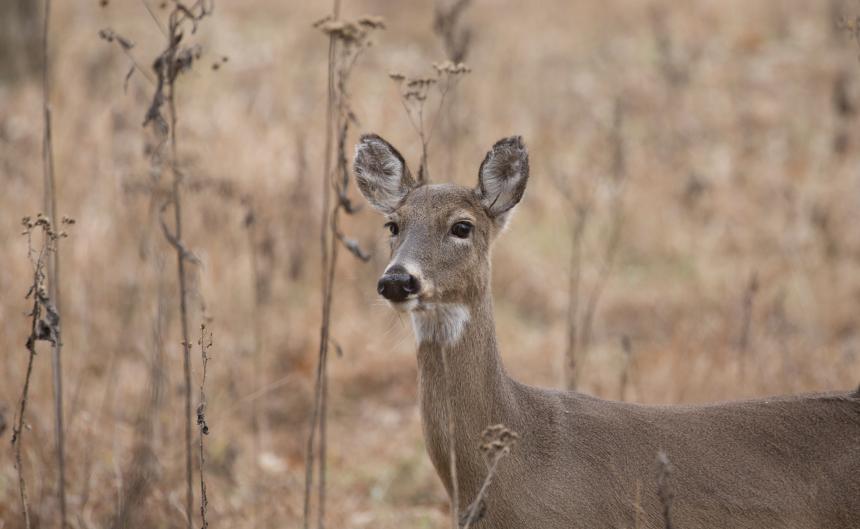News

For Your Information
November 01, 2023
This new paper by Cornell researchers presents background and commentary focusing on companion and peri-domestic animals as disease risk for humans, taking into account the human-animal interface and population dynamics between the animals themselves.

For Your Information
October 28, 2023
In this study led by Cornell's Dr. Karyn Bischoff, researchers found pesticide contamination of beeswax in New York State's beekeeping industry to be common, with commercial beekeepers experiencing the greatest contamination.

Announcement
October 26, 2023
Cornell's Dr. Raina Plowright will be serving as a co-chair of a new Commission on Prevention of Viral Spillover, convened by The Lancet and the Coalition for Preventing Pandemics at the Source.

October 24, 2023
Cornell's Krysten Schuler comments on how chronic-wasting disease spreads in deer and the importance of monitoring the disease through surveillance.

Video
October 23, 2023
In this eCornell webinar, Dr. Steve Osofsky, Dr. Krysten Schuler, and Dr. Jennifer Bloodgood of the Cornell Wildlife Health Center at the Cornell College of Veterinary Medicine share their experiences from the field and the lab to illustrate how the health of wildlife and our own health are inextricably linked.

October 20, 2023
Dr. Martin Gilbert, our wild carnivore health specialist, reflects on his decades-long research into canine distemper virus in endangered wild tigers, from the Russian Far East to Southeast Asia, and the valuable partnerships he has developed to help implement disease surveillance systems to monitor wild tiger health.

October 17, 2023
A black bear being treated at the Cornell Janet L. Swanson Wildlife Hospital tested positive for a Salmonella strain that had not been seen in animals in the U.S. before. A joint study between the hospital and Dr. Kevin Cummings helped detect the outbreak quickly and prevent the bacteria from spreading further.
October 13, 2023
Dr. Raina Plowright, the Rudolf J. and Katharine L. Steffen Professor of Veterinary Medicine in the Department of Public and Ecosystem Health at CVM was elected to the National Academy of Medicine, one of the highest honors in the fields of health and medicine.

Blog
October 09, 2023
This past summer, Cornell veterinary student Sophie Yasuda traveled to Puerto Viejo de Talamanca, a beautiful beach town along the Caribbean coast of Costa Rica, to work at the Jaguar Rescue Center.

For Your Information
October 06, 2023
This recent study shows that despite a population increase of greater one-horned rhinos in Nepal's Chitwan National Park, genetic diversity has declined.
